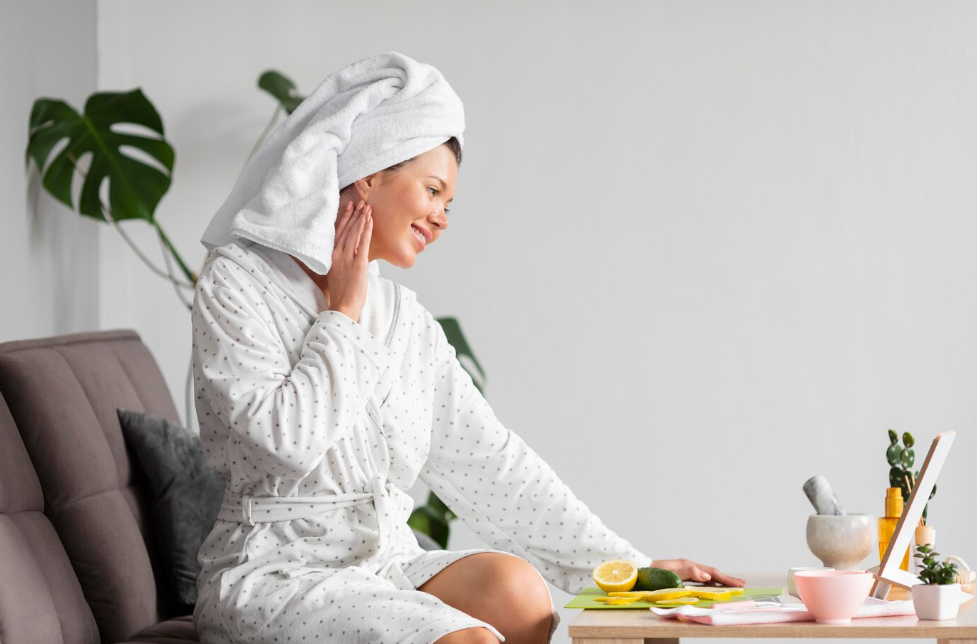Self Care Origin
Learn about the history of self-care and how it can help us succeed in life.

Selfpause Affirmation App
Download the app to get 1,000’s of affirmation meditations and everything you need to write, record and listen to your own.
Among the most famous Greek philosophers of all time, Socrates is credited with inventing the Socratic question and answer method. His method is often described as “asking annoying questions” to uncover the truth. Socrates was born in Athens in 469 B.C. and died at age 70. His life and death have received equal attention from historians and classicists.
Socrates believed that knowledge of self could lead to a better view of good. He claimed that an unexamined life is not worth living. He advised ambitious youths to work on themselves before attempting political leadership.
The word gnothi sauton comes from a Greek word meaning “care” or “self improvement”. It could have encompassed meditation, prayer, education, exercise, or any other activity that promotes the good.
Socrates also cared for other people. He inspired them to pursue self-care and virtue, and encouraged them to care for others.
In his writing, Socrates is credited with transforming the intellectual development of the world. He was an interrogator of everyday views of Athenians and a teacher of ethics. He showed the importance of self-knowledge and its relationship to the good and to moral development.
Socrates also showed that an ongoing cognitive process is essential. Unlike the modern world, which has a static approach to knowledge, the ancient Greeks required an ongoing cognitive process.
In his book, Michel Foucault explores the origins of the Socratic notion of self care. Foucault points to references to care in Socratic dialogues, and suggests that a Socratic approach to self-care is a technique of care.
Socrates’ self-care origins are linked to the principle of self-knowledge. Socrates believed that knowing about oneself was an intellectual virtue, and that it led to a better understanding of the good.
Esalen Institute

Located in Big Sur, California, Esalen is one of the world’s best known and most sought after retreat centers. In addition to offering personal growth and healing experiences, the Institute is home to a number of research initiatives. Its holistic healing arts are designed to help awaken the inner wisdom of the individual.
Esalen’s holistic healing arts include craniosacral therapy, transformational kinesiology, massage, and more. During the last two years, the Institute has been undergoing a $15 million Campus Renewal Project. The project is the largest property development effort in Esalen’s history and will include a six-room guest building, a new kitchen, and a remodeled lodge. In addition to offering holistic healing arts, Esalen is also pursuing commercial opportunities. It is working toward zero-energy footprint buildings and best planning and materials.
In addition to its healing arts programs, Esalen also offers workshops on the latest in personal growth. The Institute’s signature massage modality, for example, features signature flowing strokes. Its massage clinic is staffed by experienced Esalen massage therapists. Guests can also schedule massage appointments and soak in Esalen’s hot springs.
In addition to offering healing and self-improvement workshops, the Institute offers courses on personal growth, intimacy, and more. The center also hosts an artist-in-residence program. The center also has a kitchen and dining hall stocked with fresh produce.
Esalen’s sustainability agenda includes best planning and materials, solar, and geothermal energy. The center has also teamed up with a microdosing educator, Adam Bramlage, to teach the science of microdosing.
The Esalen Institute is a non-profit retreat center located in Big Sur, California. It is a leader in the holistic healing arts and offers a number of unique transformational learning experiences.
Community-wide efforts

During a recent visit to College Park Scholars, I asked one of their student organizers, Anthony Sartori, for his take on community-wide efforts for self care. I hoped to learn some useful tips and tricks to help me get the most out of my new found civic engagement.
Although I was unable to get my hands on Anthony Sartori’s secret sauce, I did learn some useful tips from a recent visit to the Scholars Promoting and Revitalizing Care (SPARC) website. This website, a spin-off from the College Park Scholars program, features information and resources to inspire a culture of care in local organizations.
The site is a resource hub for students, scholars, and community leaders to learn more about community care. Among its many offerings are a free webinar series and the chance to take part in a community care simulation.
While the name of this site isn’t a direct competition with the Do Good Challenge, it did win the coveted Heart of the Audience award, which honors a group that captures the attention of its audience. The organization, a student-run organization at the University of Maryland, is looking to improve the health of its student body through a variety of community care activities.
While a community-wide effort for self care may be the first thing that comes to mind, it is also possible that an individual may not be able to dedicate the time or resources required for such activities. This is particularly true if the person is working multiple jobs. The best way to improve one’s health may be to find a more wholesome way to spend one’s time.
Black Panthers

During the late 1960s and 1970s, the Black Panther Party was a leading force in the introduction of self care in the public sphere. The Party emphasized community service and believed that ensuring the health of marginalized communities was necessary for their survival. They developed a variety of programs, such as free breakfast for school children, free medical clinics, legal aid offices, and sickle-cell testing centers.
Black Panther leaders believed that the social welfare programs they developed were better than no care at all. They also believed that providing care to the poor had the potential to transform the lives of the poor. This ideology was later criticized by cultural nationalists who questioned the political power of providing free services to the community.
Health activism in the Black Panther Party emerged at the intersection of institutional, tactical, and ideological processes. The Party’s health outreach programs grew out of their community “survival programs”. They provided free medical care, clothing, and transportation. The process was encapsulated in the Free Breakfast for School Children Program, which fed over ten thousand Black children each day.
The Black Panther Party also developed programs to educate the public about the realities of life in Black communities. The Party’s community service program was a response to police brutality in Black neighborhoods. The Party also funded volunteerism and fundraising efforts. The Free Food Program provided groceries for the oppressed.
The Black Panther Party also launched community-based health clinics, such as the People’s Free Medical Center. These clinics provided an alternative to standard hospitals. However, the health centers were systemically discriminatory towards Black people.
In 1972, the Party revised its platform, adding a demand for free healthcare for all black people. The BPP ideology also changed, focusing on anti-racism, self-discipline, and self-defense.
Reflecting on your self-care journey

Taking the time to reflect on your self-care journey can help you improve your overall health and well-being. It’s important to know where you’ve come from so you can move forward.
There are numerous strategies for taking care of yourself, from self-care tips to meditation. If you’re feeling burnt out, you may want to read up on what you can do to alleviate some of the stress you’re experiencing.
A good self-care plan includes activities you’ll enjoy and can do on your own time. For example, you can listen to music, watch a movie, or play a video game. If you’re stressed out, you may want to consider contacting a trusted family member or friend.
Self-care is an important part of your overall wellness, from mental health to physical health. It can help you feel better and lower your chances of getting sick. Taking care of your body can also help you feel better about yourself and improve your relationships with others.
The best self-care plan is one that you can stick to for the long haul. If you have a job, you’re probably expected to work long hours and miss out on opportunities for self-care. For instance, if you’re having trouble focusing at work, you may want to change your schedule or take a break. This will give you more time to devote to self-care.
A self-care plan can also be a community effort. Your friends and family can give you a lot of support and motivation. A good self-care plan is also the best way to keep yourself from getting pushed around. If you’re in the market for a self-care plan, check out this infographic for a handful of suggestions.
Our Top FAQ's
The concept of self-care has roots in ancient philosophical and spiritual traditions, including those of the Greeks, Romans, and Eastern cultures. In these traditions, self-care was often viewed as a way to maintain balance and harmony within oneself, and was often seen as a necessary component of overall health and well-being.
The concept of self-care has evolved significantly over time, and today it is understood in a variety of different ways. In modern society, self-care is often seen as a way to manage stress and improve overall physical, mental, and emotional health. It can include a wide range of practices, such as exercise, proper nutrition, sleep, relaxation, and mindfulness.
Historical examples of self-care practices include ancient Greek and Roman baths, which were used for both hygiene and relaxation, as well as traditional Eastern practices such as yoga and meditation, which are still popular today as self-care practices.
Cultural and societal influences have played a significant role in shaping the practice of self-care. In some societies, self-care is seen as a necessity for maintaining physical and mental health, while in others it may be viewed as a luxury or indulgence. Social norms and expectations can also impact how self-care is practiced and perceived, with some cultures valuing individual self-care practices and others emphasizing the importance of communal self-care practices.
The concept of self-care has been addressed in various fields, including psychology, sociology, and healthcare. In psychology, self-care is often seen as a way to manage stress and improve overall mental health, while in sociology it may be studied as a way to understand how social norms and expectations impact self-care practices. In healthcare, self-care is often seen as a way to prevent illness and promote overall physical and mental well-being.
